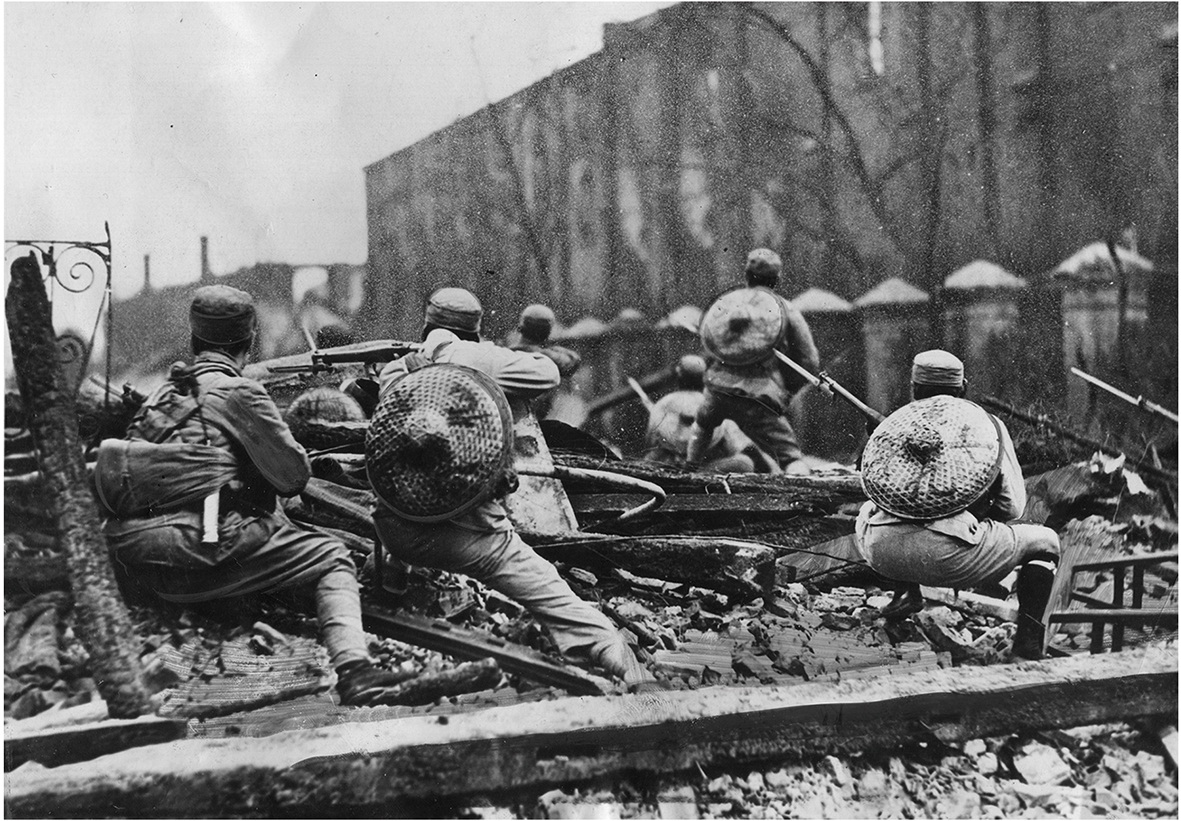What's the expected endgame of those plans where we allow Japanese soldiers into Reewiin? Japanese sailors start a riot, there's bloodshed, we pay Japan and give them a small slice of Reewiin on which they can station more soldiers. Chances are, the sailors who were involved get treated as heroes when they get home to Japan. If you're one of the soldiers stationed in the Japanese Concession in Kismayo, it seems like it'd be a great idea to find
any excuse to say you were attacked and then start shooting at locals - after all, you're acting in self-defence, and you'll be celebrated for it when Japan gets even more money! As a reminder, this
just happened in Shanghai:

en.wikipedia.org
Trying to haggle on an international settlement doesn't make Japan happy while also creating a gigantic problem for us in the future.
Meanwhile, we have a great chance to call Japan's bluff. They don't have access to Manchurian steel yet (it was just conquered), but are trying to build up their military; losing access to Reewiin's iron mines for the next few years would set them back significantly. They just burnt a huge amount of international goodwill in Shanghai and Manchuria, and a trans-oceanic invasion would spook the great powers. Britain would likely freak out; an outright Japanese colony in the Indian Ocean threatens the critical supply lines to Singapore. The Army's busy garrisoning the Chinese border and pacifying Manchuria. This also isn't an ultimatum; we've been told refusing all the suggestions "will be looked upon poorly". The worst thing they could do short of invasion is say "we'll stop buying steel from you", but they're isolated from the international community, who else are they going to turn to?
Instead, I propose we take advantage of this situation. Japan's economy is growing, and they have a crippling addiction to guns and steel. Meanwhile, we want to boost our on economy and our domestic arms industry. If we offer concessions in arms, it gets our foot in the door to directly compete with Japanese domestic arsenals. Even if we offer 100% of rifle production at cost (i.e., no markup for the government), that's still keeping the people who work in our mines, foundries, and munitions factory securely employed. That will grow the steel industry in a period of time where most countries are struggling, and when the Great Depression ends, we'll have a huge industry (for a small African country in the '30s) and a Japan who's hooked on Reewiin guns that now have the government markup.
